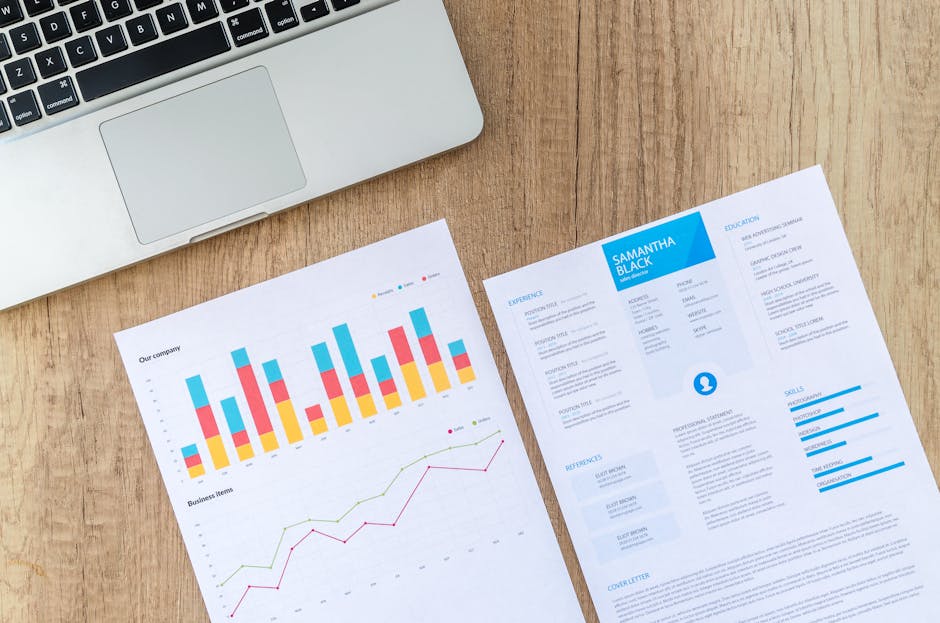Using Data Analytics to Make Informed Career Decisions
Data analytics is transforming how individuals approach career planning, offering a wealth of insights that can guide informed decisions. By analyzing various data points such as job market trends, salary benchmarks, and skill demands, people can better understand which career paths align with their goals and strengths. This methodical approach to career decision-making minimizes uncertainties and maximizes opportunities for success.

Understanding the Basics of Data Analytics
Data analytics involves collecting and analyzing data to uncover patterns and insights that inform decision-making. In the context of career planning, data analytics can help identify emerging job trends, high-demand skills, and potential growth areas. This information is invaluable for those looking to make strategic career moves or pivot into new fields.
One fundamental aspect of data analytics is the use of descriptive statistics to summarize historical job market data. For instance, tools like LinkedIn and Glassdoor provide data on job availability, company hiring practices, and average salaries. These platforms aggregate user data to offer a comprehensive view of industry standards.
Predictive analytics also plays a critical role by using historical data to forecast future trends. For example, by analyzing hiring patterns in tech industries over the past decade, one can predict which programming languages will be in demand in the coming years. Such insights enable individuals to acquire relevant skills ahead of time.
The importance of big data cannot be overstated in this context. With massive datasets from various sources like job boards, social media, and educational institutions, data analytics provides a robust foundation for making well-informed career decisions.
Applying Data Analytics to Career Decisions
One practical application of data analytics in career planning is identifying high-growth industries. According to the U.S. Bureau of Labor Statistics, sectors such as healthcare, technology, and renewable energy are expected to see significant growth over the next decade (BLS). By focusing on these industries, individuals can align their career paths with areas that offer stability and advancement opportunities.
Data analytics can also assist in skill gap analysis. Online learning platforms like Coursera and Udemy provide courses tailored to fill specific skill gaps identified through data analytics. These platforms analyze job postings to determine which skills are most sought after by employers. For example, a surge in demand for cybersecurity professionals has led to an increase in related courses on these platforms.
Additionally, salary benchmarking tools utilize data analytics to help individuals understand their earning potential within different roles and industries. Websites like Payscale aggregate salary data from millions of users to provide accurate compensation benchmarks (Payscale). This information is crucial for negotiating salaries or deciding whether additional education or certifications are worth pursuing.
Tools and Technologies for Data-Driven Career Planning
Several tools facilitate data-driven career planning by providing valuable insights from vast datasets. Platforms like LinkedIn Insights offer detailed analyses of job trends, in-demand skills, and company growth metrics. These tools help users understand where opportunities lie and how they can best position themselves in the job market.
Another useful tool is Google Trends, which tracks search interest over time for various keywords related to jobs and careers. By analyzing search patterns, individuals can gauge public interest in different professions and anticipate future demand shifts (Google Trends).
Tableau is a powerful visualization tool that enables users to create interactive charts and graphs from complex datasets. This visual representation makes it easier to interpret data trends and derive actionable insights for career planning (Tableau).
| Tool | Purpose |
|---|---|
| LinkedIn Insights | Analyzing job trends and skill demands |
| Payscale | Salary benchmarking |
| Google Trends | Tracking search interest for careers |
| Tableau | Data visualization |
Challenges and Ethical Considerations in Data Analytics
While data analytics offers numerous benefits for career planning, it also presents challenges that must be addressed. One significant issue is data privacy. As personal information is collected and analyzed, ensuring the security and confidentiality of this data is paramount. Misuse of personal data can lead to breaches of privacy and trust.
An ethical consideration is the potential for bias in data analysis. If datasets are not representative or are skewed by certain demographics, the resulting insights may be misleading. It is essential to use diverse datasets and robust analytical methods to mitigate bias.
An additional challenge is keeping up with the rapid pace of change in job markets and technologies. Continuous learning and adaptability are crucial for leveraging data analytics effectively in career planning. Individuals must stay updated with new tools, methodologies, and industry trends to make informed decisions consistently.
The integration of artificial intelligence (AI) with data analytics further complicates ethical considerations. AI algorithms must be transparent and fair to avoid reinforcing existing biases or creating new ones. Responsible AI practices are necessary to ensure equitable outcomes in career planning applications.
The use of data analytics in making informed career decisions highlights a strategic approach that leverages vast amounts of information to guide choices effectively. Understanding basic concepts like descriptive and predictive analytics allows individuals to grasp market trends and forecast future demands more accurately. Practical applications such as identifying high-growth industries or conducting skill gap analyses provide actionable insights that align with one's professional goals.
The availability of specialized tools enhances this process by offering tailored information on job trends, salary benchmarks, and skill requirements. Challenges like data privacy concerns and potential biases must be addressed conscientiously to maintain trustworthiness and accuracy in analytical outcomes.
This blend of technological advancements with ethical mindfulness ensures that leveraging data analytics for career planning remains both effective and responsible. As individuals increasingly rely on these insights for their professional journeys, striking a balance between innovation and integrity becomes ever more critical.